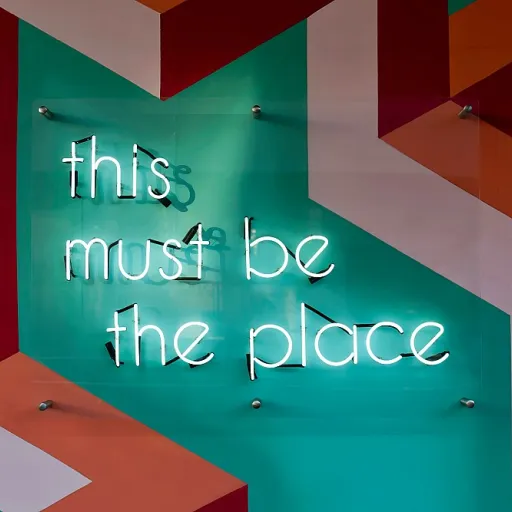
Understanding the Skills Gap in Retail
Retail’s Ever-Evolving Landscape
In the dynamic world of retail, the skills gap has been a prominent concern as retailers continuously strive to meet consumer demands efficiently. The landscape demands agility, with rapid advancements in technology and shifting consumer expectations shaping the way business is done. This evolution necessitates a skilled workforce adept in utilizing real-time data and insights to optimize retail partnerships and enhance customer experiences.
The Importance of Data-Driven Decision Making
Retailers and brands are increasingly relying on data to drive decision-making processes. Data sharing and collaborative efforts are pivotal in gaining actionable insights into market performance and understanding consumer behavior. Retailers must leverage data to manage inventory efficiently and enhance supply chain operations, ensuring that the right products are available to customers at the right time. For an in-depth perspective on bridging such knowledge gaps, explore our guide on effective learning teams.
Transforming Retail Partnerships
The interplay between retailers and their partners is crucial in navigating the complex market. Effective retail collaboration can transform how brands and retailers operate together, driving sales and boosting market presence. By harnessing collaboration tracking, partners can streamline communication, align strategies, and boost the overall performance of retail operations.
Enhancing Consumer Experience
The ultimate goal of addressing the skills gap in retail lies in enhancing the customer experience. By efficiently utilizing retail collaboration and data tracking, businesses can create a customer-centric approach, ensuring that consumers receive the best products and services promptly. This shift not only improves customer satisfaction but also fosters loyalty and sustains competitive advantage in the market.
The Role of Collaboration in Retail Success
Unlocking the Power of Collaborative Dynamics
In the fast-paced retail sector, collaboration is the cornerstone of thriving partnerships and achieving success. Retailers understand that true collaboration extends beyond simple agreements with partners and brands. It’s about creating a synergy that results in enhanced customer experiences and optimal product development.Effective collaboration in retail demands a cohesive approach where data sharing between retailers and brands plays a pivotal role. Data, especially real-time data, serves as a catalyst for driving insightful decisions and market intelligence. Such data-driven insights empower retailers to fine-tune inventory management and align marketing strategies with current consumer trends.
Utilizing collaboration tracking facilitates synchronized efforts between partners, ensuring that marketing and sales strategies are grounded in shared objectives and mutual benefits. Cloud-based platforms like those offered by Google Cloud provide the infrastructure for seamless data sharing, enabling team members across different levels to stay informed and agile. This optimized flow of information allows for dynamic responses to market changes and consumer demands.
Collaboration tracking provides a structured approach, offering partners a transparent view of performance metrics. By utilizing actionable insights, both retailers and brands can navigate challenges and capitalize on opportunities more effectively. The more efficient the collaboration, the better equipped retailers are to serve their customers and maintain a competitive edge.
For more on how technology can enhance collaborative efforts, you can explore the role of online collaborative productivity software in bridging the skills gap.
Implementing Retail Collaboration Tracking
Optimizing Collaboration through Targeted Tracking
To successfully implement collaboration in retail, it's essential to employ a structured approach to tracking interactions and outcomes. Understanding the nuanced dynamics of retail partnerships requires a thorough grasp of not only the cooperation between brands but also the sync with customers, products, and market trends. This insight can drive necessary actions, enhancing both immediate and long-term success.
Collaboration tracking focuses on aligning partners and retailers in real-time, offering actionable insights to improve the customer experience. By leveraging real-time data, retailers can efficiently manage their inventory levels, align product offerings with consumer demand, and strategically respond to market shifts. This proactive stance often involves integrating cloud-based solutions, such as leveraging Google Cloud, to facilitate seamless data sharing and market intelligence.
Effective collaboration tracking requires a robust framework that highlights the strengths and needs of each partner. Key objectives include:
- Implementing data sharing protocols to ensure transparency and fluid communication.
- Utilizing performance metrics to assess the effectiveness of joint initiatives.
- Identifying areas for product development based on consumer insights and market data.
- Facilitating streamlined decision making that aligns with overarching business goals.
A successful case study in collaboration tracking can offer valuable lessons, emphasizing the importance of a strategic approach tailored to the unique objectives of each stakeholder. By bridging the skills gap, retailers and their brands can harness the collective strengths of their partnerships, enhancing retail collaboration and driving higher sales and customer satisfaction. For further insights on how talent coordination can contribute to this end, check out our guide on the role of a talent management coordinator in bridging the skills gap.
Benefits of Effective Collaboration Tracking
Maximizing Retail Success Through Effective Data and Partnership Collaboration
Enhancing retail partnerships requires a systematic approach to collaboration tracking. When data is utilized efficiently, retailers and brands can leverage real-time insights for better decision-making, ultimately benefitting the end-customer. Here’s how effective collaboration tracking can transform retail dynamics. One of the most significant advantages of collaboration tracking is the enhancement of market intelligence. When retailers and their partners engage in seamless data sharing, they unlock actionable insights that drive product development and marketing strategies. This type of data exchange facilitates a deeper understanding of consumer behaviors, enabling brands and retailers to tailor their offerings to meet customer expectations more accurately. Real-time data tracking empowers retail partners to manage inventory more effectively. With access to the latest sales and performance data, team members can make informed decisions about product restocking and supply chain adjustments. This reduces the risk of overstocking or stockouts, ensuring that customers always find the products they desire. Incorporating cloud-based technologies into collaboration tracking allows for better communication and coordination among retailers' brands. Tools like Google Cloud support this integration by offering scalable solutions that accommodate the diverse needs of consumer goods industries. As a result, partners can maintain transparency and synchronization across various retail operations. The effectiveness of collaboration tracking is evident in case studies where brands have improved not only their operational efficiency but also customer experience. By optimizing retail partnerships through data insights and continuous cooperation, brands can maintain a competitive edge in an ever-evolving market. With collaboration as a focal point, companies are better equipped to foster long-term relationships that bolster sales and consumer satisfaction.Challenges in Retail Collaboration Tracking
Overcoming Obstacles in Retail Collaboration
Effective collaboration tracking presents several challenges that retailers, partners, and brands must address to optimize their performance. Tackling these hurdles is crucial for ensuring the success of retail collaborations and maximizing customer experience outcomes.- Data Sharing Complexities: Retailers and brands often encounter difficulties in harmonizing data sharing practices. Protecting sensitive information while enabling actionable insights requires secure platforms that can handle consumer data in real-time. Implementing a cloud-based solution like Google Cloud can enhance data integration across the supply chain.
- Alignment Across Teams: Different team members, from retail partnerships to product development, must stay aligned. Without a cohesive strategy, collaboration tracking can generate discrepancies in inventory and marketing strategies, affecting sales performance. Regular synchronization meetings and feedback loops foster effective communication and decision-making.
- Technology Integration Issues: Retailers need scalable tools for collaboration tracking that fit seamlessly into existing infrastructure. Ensuring that these technologies capture market intelligence and provide clear insights is vital for maintaining a competitive edge. A case study of successful brands can offer valuable strategies for implementing technology-driven solutions.
- Real-Time Adaptation to Market Changes: Rapid shifts in market conditions require brands and retailers to adapt swiftly. Real-time data tracking facilitates prompt response, ensuring that products meet consumer demands efficiently. Retailers must embrace solutions that enable agility in their operations.
Future Trends in Retail Collaboration and Skills Development
Emerging Technologies and Their Impact
As the retail landscape evolves, emerging technologies are playing a pivotal role in shaping the future of collaboration and skills development. Cloud-based solutions, such as Google Cloud, are enabling real-time data sharing among retailers, brands, and partners. This facilitates seamless collaboration and provides actionable insights that enhance decision-making processes. By leveraging these technologies, retailers can improve inventory management and optimize supply chain operations, ultimately enhancing the customer experience.
Data-Driven Decision Making
The integration of advanced data analytics is transforming how retailers and brands approach collaboration. By harnessing retail data and market intelligence, businesses can gain deeper insights into consumer behavior and market trends. This data-driven approach allows for more informed product development and marketing strategies, ensuring that retailers and brands can meet the evolving needs of their customers. The ability to track performance in real-time also enables teams to make timely adjustments, improving overall efficiency and effectiveness.
Enhancing Retail Partnerships
Future trends indicate a growing emphasis on strengthening retail partnerships through enhanced collaboration tracking. By fostering transparent communication and data sharing, retailers and their partners can build stronger relationships that drive mutual success. This collaborative approach not only improves sales and market performance but also supports the development of innovative products that resonate with consumers. As the market becomes increasingly competitive, the ability to collaborate effectively will be a key differentiator for brands and retailers alike.
Skills Development for the Future
To keep pace with these advancements, there is a pressing need for skills development within the retail sector. Retailers must invest in training programs that equip their team members with the necessary skills to leverage new technologies and data insights. By prioritizing skills development, businesses can ensure that their workforce is prepared to navigate the complexities of modern retail collaboration. This proactive approach will not only enhance individual performance but also contribute to the overall success of retail partnerships.












